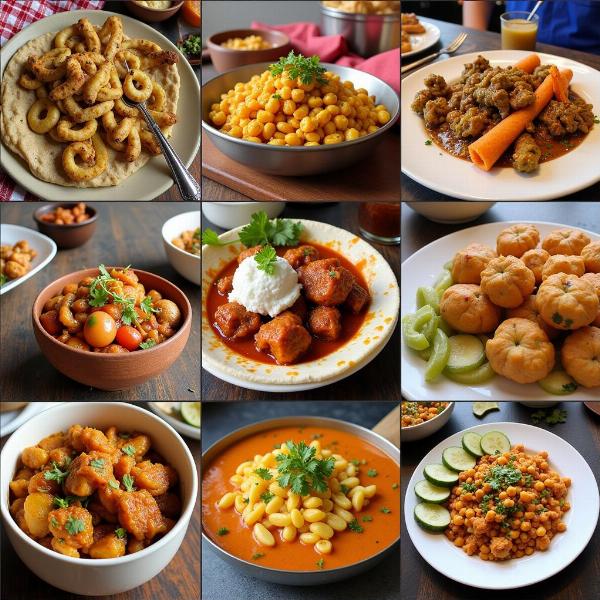Understanding the nuances of introducing yourself in another language is crucial, and if you’re looking for the Hindi translation of “I am from Delhi,” this article provides a comprehensive guide. We’ll explore various ways to express this simple phrase, delving into the cultural context and offering practical examples for different situations. “I am from Delhi meaning in Hindi” is a common search query, highlighting the importance of accurate translation and cultural sensitivity.
Different Ways to Say “I Am From Delhi” in Hindi
There are several ways to convey “I am from Delhi” in Hindi, each with slight variations in formality and regional preference. Let’s explore the most common and accurate translations:
- मैं दिल्ली से हूँ (Main Dilli se hoon): This is the most common and straightforward translation. “Main” means “I,” “Dilli” is Delhi, and “se” indicates “from.” “Hoon” is the present tense form of the verb “to be.” This is suitable for most conversational settings.
- मैं दिल्ली का/की हूँ (Main Dilli ka/ki hoon): This version translates to “I am of Delhi.” The use of “ka” (masculine) or “ki” (feminine) depends on the gender of the speaker. This form is slightly more formal and can imply a stronger connection to the city.
- मैं दिल्ली वाला/वाली हूँ (Main Dilli wala/wali hoon): This translates to “I am a Delhiite” or someone who belongs to Delhi. Again, “wala” is used for male speakers and “wali” for female speakers. This expression is more colloquial and emphasizes belonging to the city.
Understanding the Cultural Context
Delhi, the capital of India, is a melting pot of cultures and languages. While Hindi is widely spoken, the influence of other languages and dialects is evident. The way you express “I am from Delhi” can subtly convey your background and familiarity with the local culture. Choosing the right phrasing can help you connect with locals and avoid misunderstandings. For example, using “Main Dilli wala/wali hoon” instantly establishes a sense of camaraderie with fellow Delhiites.
Practical Examples and Usage
Here are some examples of how to use these phrases in different situations:
- Formal: When meeting someone in a professional setting, “Main Dilli se hoon” is a safe and respectful choice.
- Informal: When chatting with friends or family, “Main Dilli wala/wali hoon” conveys a sense of belonging and casualness.
- Giving Directions: If someone asks you where you’re from, any of the phrases are suitable depending on the context.
- Emphasis on Origin: If you want to emphasize your connection to Delhi, using “Main Dilli ka/ki hoon” can be effective.
 Delhi Street Food Meaning in Hindi
Delhi Street Food Meaning in Hindi
Which Phrase Should You Use?
The best phrase to use depends on the context and your comfort level. For beginners, “Main Dilli se hoon” is a good starting point. As you become more familiar with the language and culture, you can experiment with other variations.
I Am Also From Delhi Meaning in Hindi
If you encounter someone who is also from Delhi, you might want to express that shared connection. You can say “मैं भी दिल्ली से हूँ (Main bhi Dilli se hoon),” which means “I am also from Delhi.” This is a simple way to build rapport and find common ground. i am also from delhi meaning in hindi can be explored further on our website.
Conclusion
Knowing how to say “I am from Delhi” in Hindi is more than just a simple translation. It’s about understanding the cultural nuances and choosing the right expression for the situation. Whether you choose “Main Dilli se hoon,” “Main Dilli ka/ki hoon,” or “Main Dilli wala/wali hoon,” accurately conveying your origin can enhance your communication and create a positive impression. This understanding fosters deeper cross-cultural interactions and demonstrates respect for the language and its speakers. So, next time you introduce yourself in Hindi, remember these options and choose the one that best suits your needs.
FAQ
-
What is the most common way to say “I am from Delhi” in Hindi? Main Dilli se hoon (मैं दिल्ली से हूँ) is the most common and straightforward way to express this.
-
Does the gender of the speaker affect the translation? Yes, in some cases. “Main Dilli ka/ki hoon” and “Main Dilli wala/wali hoon” use different endings depending on the speaker’s gender.
-
Is there a more informal way to say it? “Main Dilli wala/wali hoon” is considered more colloquial and informal.
-
How do I say “I am also from Delhi”? You can say “Main bhi Dilli se hoon (मैं भी दिल्ली से हूँ).”
-
Where can I learn more about Hindi translations? You can explore resources like Meaning-Hindi.in for comprehensive language assistance.
Related Articles
You might also find these articles helpful: i will do this tomorrow meaning in hindi, polis meaning in hindi, lower abdominal meaning in hindi, observatories meaning in hindi.
Meaning-Hindi.in is your trusted partner for accurate and culturally sensitive Hindi translations. We offer a wide range of translation services, from business and legal documents to website localization and educational materials. Our team of expert linguists ensures that your message is conveyed clearly and effectively in Hindi and other languages. Contact us today for a free quote via email at [email protected] or phone at +91 11-4502-7584. Meaning-Hindi.in is here to help you bridge the language gap and connect with your target audience.